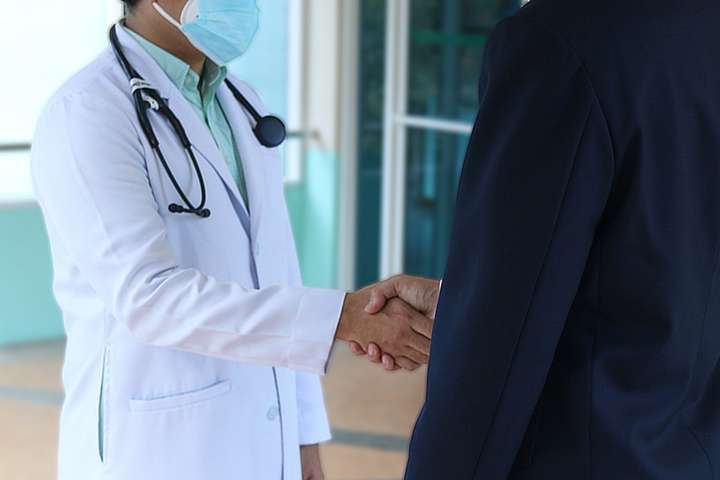How do you protect yourself from Bloodborne pathogens? Each year, millions of people from the United States and other countries get infected by disease pathogens. Some of these Bloodborne pathogens, including HIV, cause chronic infections that no one can treat but can manage. If working in prone areas or have an occupation that puts you at risk of contracting bloodborne pathogens, you have to understand ways of protecting yourself and the people you love. For instance, if you are an employer, OSHA has guidelines to protect your workers, including having training and control plans. This informative article will discuss what Bloodborne pathogens are and how you can protect yourself from contracting them. Read on for more.

What are Bloodborne pathogens?
Pathogens are organisms that cause diseases. They are germs that can cause unending infection to humans. These germs, which are strictly passed through blood and body fluids, are known as Bloodborne pathogens. Some of the common Bloodborne pathogens worldwide include MRSA, HIV, and Hepatitis B and C. In line with Bloodborne Pathogens Training, it is essential to know how to protect yourself from these disease-causing organisms. The training will help to protect yourself and your loved ones from infections.
How do Bloodborne pathogens enter the human body?
To contract a Bloodborne pathogen, you must have contacted blood or the body fluid of someone contaminated with the disease. Also, you can get the pathogens through insect bites and when pricked with infected syringes or getting into contact with infected surfaces. Some of the ways individuals contract pathogens include open cuts, skin abrasions, nicks, needle syringes and cuts, accidental punctures, unprotected sex, and through mucous membranes of the mouth, nose, and eyes.
Measures to mitigate Bloodborne pathogen risks
There are several healthcare measures one can take to reduce the chances of contracting Bloodborne pathogens. When individuals follow these measures, they will reduce the risks or minimize ways of contracting these pathogens. One can avoid contracting Bloodborne pathogens and other related infections by reducing contact with human blood and other body fluids carrying the germs.
It might not be possible not to contact the human blood and bodily fluids, especially healthcare workers. It is for this cause that OSHA created the Bloodborne Certification standard. The standard requires every individual who gets into contact with the human blood and body fluids to undergo training to protect themselves from these pathogens.
Individuals not involved in healthcare or workplaces with blood and body fluids also need to take extra care to avoid contracting pathogens through other ways. For instance, they should prevent practising unprotected sex, especially if they are in polygamous relationships. Individuals need to be sure of the syringes and surfaces they are using and protect themselves from insects, including mosquitoes, to prevent diseases spread by insects such as malaria.
PPEs and Bloodborne pathogens
After the rise of infectious diseases, The United States Centre for Disease Control and Prevention (CDC) put measures to avoid the spread of Bloodborne pathogens. Among the actions taken was using Personal Protective Equipment (PPE). The PPEs have greatly helped minimize the spread of Bloodborne pathogens and have reduced deaths caused by these disease-causing organisms.
Some of the most commonly used Personal Protection Equipment (PPE) includes masks, respirators, eye goggles, single-use disposable gloves, aprons, and scrubs. Always wear these PPEs every time you come into contact or dealing with surfaces or patients, and you are risking contracting the Bloodborne pathogens.
Things to do if exposed to blood or other bodily fluids
If you think you got exposed to blood or body fluids, you might be at the highest risk of contracting the Bloodborne pathogens. Here are some immediate actions to take.
- Wash or flush the contact area: It is essential to wash the exposed body part with soap and water immediately. You can repeat this cleaning process several times until you are sure everything is cleaned. If having body disinfectants, you can apply them to the area. If the contact is in your eyes, nose, or mouth, flush the area with water immediately, between 10 to 20 minutes.
- Seek medical attention: care doesn’t stop with cleaning. It is crucial to seek medical care and adopt other measures to ensure the pathogens aren’t building up in your body.

When doing the preventive measures against Bloodborne pathogens, ensure that it doesn’t stop with you. You also need to clean the surfaces and take care of your loved ones to ensure they are free from these disease-causing organisms. Once you are sure you are infected, it is essential to quarantine yourself and seek medical attention immediately. Some infections, including HIV/AIDS, will require you to use protective measures such as condoms to protect your loved ones once infected with pathogens.





